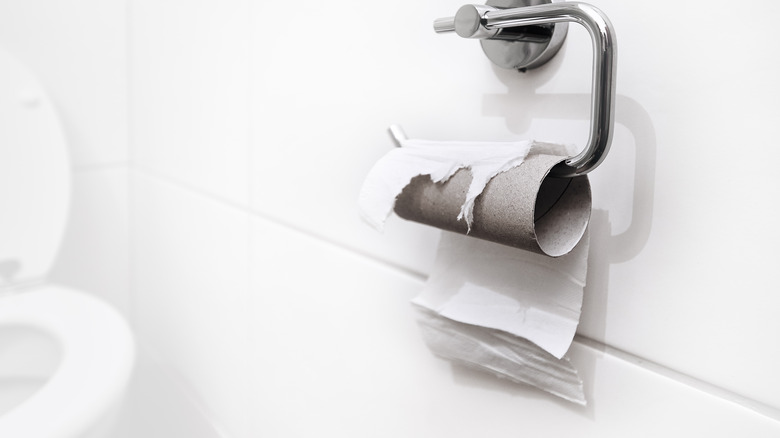The Real Reasons You Have Frequent Urination
Frequent urination means having to use the bathroom to pee more often than you normally would (via Mayo Clinic). It's not uncommon for people to urinate between four to ten times on any given day, though the average is typically between six and seven times (via Healthline). However, this can be influenced by a number of factors, including age, how much a person drinks in a day, bladder size, medication use, and whether or not someone has a medical condition that makes frequent urination more likely.
People may experience frequent urination at any point in their lives for a number of reasons. One possible cause may be due to a urinary tract or bladder condition (via Cleveland Clinic). Urinary tract infections (UTIs) are known for causing frequent urination, while in more rare instances, a painful bladder condition called interstitial cystitis, overactive bladder syndrome, or bladder cancer, can also cause frequent urination. Pregnancy can also lead to more frequent urination in women, as can prostate issues in men. Frequent urination is also a common symptom of type 1 and type 2 diabetes. Other causes of frequent urination include a stroke, pelvic tumor, vaginitis, prolapse of the pelvic organs, taking diuretics, or drinking too much alcohol or caffeine.
When should you worry about frequent urination?
If you're urinating more frequently than normal, it's possible that you may have a medical condition requiring treatment by a doctor. Make an appointment if you have questions or concerns, especially if there doesn't seem to be a clear reason for the increased urination, such as drinking more liquids like alcohol or caffeine (via Mayo Clinic). You should also contact your doctor if frequent urination is not allowing you to sleep through the night, is affecting your day to day functioning, or if you have other urinary issues.
See your doctor as soon as possible if frequent urination is accompanied by pain in your side, groin, or lower abdomen, loss of bladder control, fever, blood in the urine, or if urine is red or dark brown in color. These can be symptoms of a urinary tract infection, but may also be signs of other serious health problems. Your doctor will help you determine what's going on so you can receive proper treatment.


